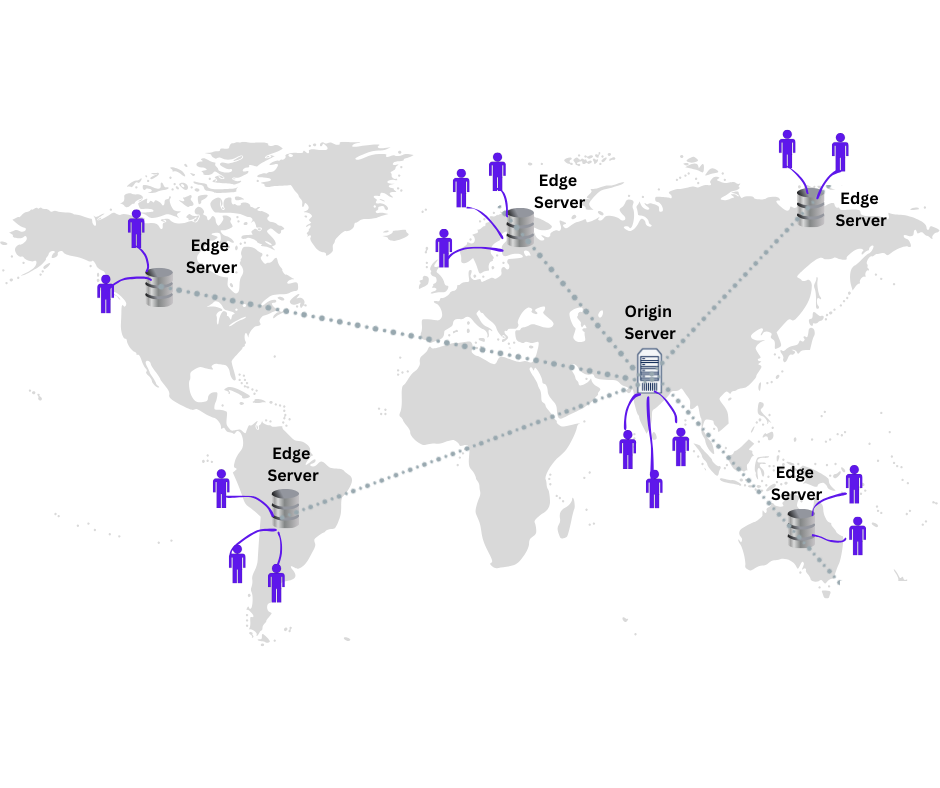
In the vast landscape of web hosting, where your server calls home can significantly impact your website’s performance, user experience, and even its legal compliance. So, does hosting server location matter? Yes indeed! In this blog, we’ll explore how it can affect your website, your SEO rankings, and the role of Content Delivery Networks (CDNs) in optimizing your web presence.
The Impact of Server Location
1. Website Speed: Imagine your website as a racing car, and your server location as the starting line. The physical distance data travels affects the time it takes to reach your users. More hops along the way, due to greater geographical distance, mean slower loading times. Every millisecond counts when it comes to user experience, making server location critical for website speed.
2. SEO Rankings: Did you know that users are quick to abandon a website that takes more than 3 seconds to load? High bounce rates can deal a severe blow to your search engine rankings. To keep visitors engaged and boost SEO, your server should be as close as possible to your target audience.
3. Legal Compliance: If your website collects and stores user data, server location becomes a matter of legal compliance. To ensure data protection and adhere to applicable laws, choose a server location that aligns with your legal obligations.
How to Choose the Best Location for Your Website’s Hosting
Selecting the ideal server location requires a thoughtful approach. Here are some factors to consider:
1. Your Location: If you reside in an area with multiple hosting options, choosing a hosting company nearby can offer faster response times and support in your language.
2. Visitor Locations: Consider where your website’s visitors are likely to be located. The closer your server is to your audience, the faster your pages will load.
3. Content Type: The nature of your content matters. Text-heavy websites may be less impacted by server location than those with videos or real-time interactions, which require low latency.
4. Regional Infrastructure: Reliable technical infrastructure in the server location ensures consistent service. Opt for hosting companies in areas with robust infrastructure.
Remember, server location is just one piece of the puzzle influencing your site’s performance.
The Role of CDN in Web Hosting
Now, let’s introduce the game-changer – Content Delivery Networks (CDNs):
What’s a CDN? A CDN is a network of geographically distributed servers that cache content closer to end-users. It accelerates the delivery of essential assets for loading web content, such as HTML pages, JavaScript files, images, and videos.

CDN Benefits:
1. Website Load Time: CDNs distribute content near users, reducing page loading times. Faster loading pages lead to lower bounce rates and longer user engagement.
2. Reducing Bandwidth Costs: By optimizing and caching content, CDNs decrease the data your origin server must provide, thus lowering hosting costs.
3. Increasing Content Availability and Redundancy: CDNs can handle high traffic volumes and hardware failures more efficiently, ensuring your website stays online.
4. Improving Website Security: CDNs enhance security through DDoS mitigation and other security optimizations.
5. Reducing Bandwidth Usage: CDNs use optimization techniques like caching to decrease server workload and bandwidth consumption.
Some of the popular CDN providers : Cloudflare, Akamai, AWS Cloudfront, Stackpath, Cachefly, Google CDN, Azure CDN, Fastly
Conclusion
To ensure your website’s speed, redundancy, and security, embrace the power of a CDN. It’s not just your hosting server location; it’s about how efficiently you can deliver your content to users. In the fast-paced digital world, a CDN can be the turbo boost your website needs to outpace the competition and keep your users engaged and satisfied, regardless of their geographical location. So, when it comes to web hosting, remember: location matters, but CDN makes the difference.

